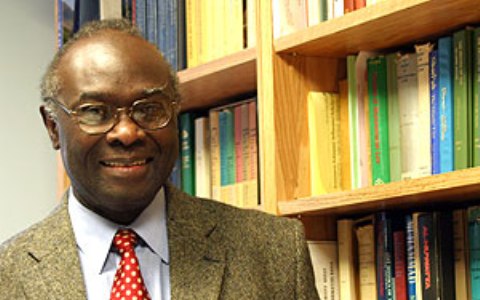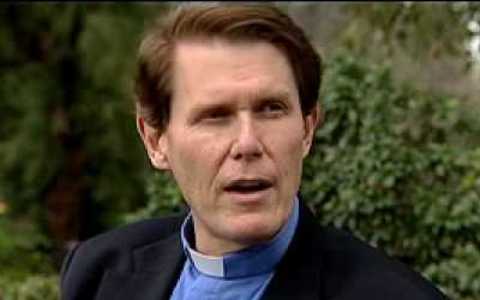ANALYSIS: East London Muslim vigilantes: it’s the territorial claims that are worrying
by - 30th January 2013

There was a media outcry last week when footage posted on YouTube showed a group of young men in different parts of East London intimidating a gay man, along with other passers-by, announcing that it was an ‘Islamic area’.
Coverage in The Standard, The Telegraph, The Independent and The Times also highlighted that a man was told to pour away a can of lager because he was ‘in an Islamic area’.
The Telegraph also briefly covered an incident in Shoreditch in which revellers leaving a nightclub were ‘confronted’ by a vigilante gang. The report gave no further details, but did carry a quote from a Detective Chief Inspector Wendy Morgan of New Scotland Yard who expressed concern about the homophobic comments along with a fear that there might be a possible escalation of such groups.
The East London Mosque on Whitechapel Road was quick to disassociate themselves from the actions of the vigilantes. Sheikh Shams Ad Duha gave a sermon at the mosque which was posted on YouTube in which he categorically denounced the actions of the vigilantes as ‘bigots’, and went on to specify that their actions were ‘contravening Islamic Law’.
This comment was particularly significant as the Sheikh is associated with the Tablighi Jama’at, a very conservative Muslim group who have been fighting to have an enormous mosque erected in Newham.
The sheikh’s words will be comforting to non-Muslims, but it is interesting to note that, whilst he condemned the vigilante group’s actions, he seemed to make no comment upon their assertion that the area was Islamic.
This is something that had also been largely missed both in the press reports and in the comments of the DCI Wendy Morgan. Media coverage has also largely focussed on the intimidation of the gay man along with mentioning the confrontation over clubbing and alcohol, but has largely failed to discuss the territorial claims the group made.
Perhaps this is because no one is taking them seriously.
After all, there are many who would laugh at the notion of any group setting up its own independent state within a state.
Those who are old enough might be reminded of the BBC comedy Citizen Smith in which Robert Lindsey played ‘Henry Smith’ who attempted to start a Marxist revolution in Tooting based upon his hero Che Guevara.
However, those who might draw such parallels should think again for they are making a serious error of judgement.
It is not some lone crackpot who is being discussed, but is instead the outworking of a very intentional and energetic ideology. For, whereas the ‘Smith’ character bumbled along for just three years, the development of ‘Islamic areas’ in Britain has been a much longer-term aspiration for those Muslims committed to that cause.
Yale Professor of History Lamin Sanneh warned about territorial Islamic ambitions in 1998 and of the ‘utter inadequacy of the sterile utilitarian ethic of the secular national state’ in addressing the challenge of it. (Faith and Power: Christianity and Islam in ‘Secular’ Britain.)
In The Emancipation of Europe’s Muslims: The State’s Role in Minority Integration published last year, the author Jonathan Laurence discusses the advice and opinion offered to Muslim minorities in the West from other Muslims. In chapter two he cites a book called Muslim Communities in Non-Muslim States published in London in 1980. In it the then minorities advisor to the Organization of the Islamic Conference, M. Ali Kettani, wrote an article entitled ‘The Problem of Muslim Minorities and the Solutions’ where he makes seven suggestions on how Muslim minorities should act if they wish to thrive. Key amongst them were that Muslims must band together to establish a viable Muslim community based on Islamic principles. Furthermore, that they must not be assimilated by the majority culture and must establish areas of high-Muslim concentration with the final objective of becoming the majority and eventually governing the whole state according to Islam. The advice was therefore to protect Islamic culture in enclaves in the first instance, and then from there, to build territory for Islam.
Clearly, just because this advice was given, it does not follow inevitably that these vigilantes in the East End of London are part of some coordinated strategy based around the advice of Kettani, or others who expressed similar sentiments. What is important to note though is that these incidents in which territory was claimed for Islam were not isolated anomalies, for back in 2008 the then Bishop of Rochester Michael Nazir Ali caused a public outcry when he stated that there were parts of Britain in which it was too dangerous for non-Muslims to enter. At the time, the Muslim Council of Britain had dismissed the Bishop’s comments as ‘frantic scaremongering’ and politicians such as Nick Clegg had described the idea as a ‘gross caricature of reality’. In reality though, the Bishop was simply expressing to a wider public, trends that had been spotted by academics and commentators in the 1990s, but who had been ignored.
The actions of these vigilantes when seen through this long lens become part of the ‘escalation’ that DCI Morgan might have been cryptically referring to: a dynamic that has developed over decades, rather than something that has made a random isolated manifestation in East London over the past couple of weeks.

Lending further credence to that worrying hypothesis is their reported use of the phrase ‘vigilantes implementing Islam upon your own necks’ in their intimidations. The phrase was widely reported, but little commented upon and this is a pity because it goes to the heart of the vigilantes’ activities: for it is a specifically dhimmi phrase. In other words, it is the language of a conquering Islam subjugating non-Muslims within its territory. The Anglican scholar, Mark Durie in his book The Third Choice demonstrates that the dhimmi status required non-Muslims to pay a tax to the authorities annually and that part of the ceremony around this payment was a strike to the neck as the tax was paid.
The underlying message was a demonstration that the non-Muslim could have been killed under jihadi doctrine, but has been allowed to live for another year.
Durie highlights that even today, striking on the neck is considered a deep insult in Arabic culture.
So for these vigilantes to be using such imagery is an act of annexation and of sovereignty over other non-Muslims, whether they understand it in those terms or not. (One wonders who is teaching them these things deep in the ‘Muslim sectors’ of London.)
The actions of these vigilantes could be viewed as the actions of a few misdirected and over-zealous youths if it weren’t for the fact that they are not part of a recent or isolated phenomenon. Their territorial claims are simply a few more examples of a problem with migration that was identified twenty-five years ago, and which is still largely unengaged.
Perhaps this is the most worrying aspect of the whole story: for nowhere in the comments of the police was there a sense that this territorialism was being addressed. Instead, the focus was on intimidation.
Clearly intimidation is something that needs dealing with whether it be in relation to homophobic incidents, racism, misogyny or any other form of bigotry, but engaging with these alone whilst neglecting the deeper issue is like telling off the pupil for bullying in class whilst his or her classmates are running riot around the rest of the school.
Unless the UK as a whole wakes up to the reality of religious territorialism and comes down hard on it as a specific crime, recent history shows it will only get worse.
Sean Oliver-Dee is a Research Fellow at the Centre for the Study of Religion in Public Life at Oxford University and Inter-Religious Advisor in the Anglican Diocese of Peterborough.
- Log in to post comments
